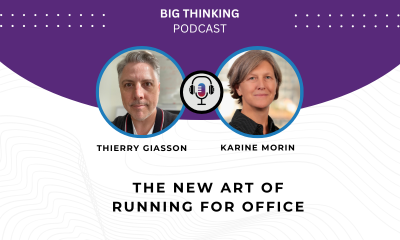Congress 2022
Due to some early technical difficulties, John Restakis literally required no introduction. Restakis, former Executive Director of the Community Evolution Foundation, presented his findings on new forms of governance that deliver decision-making power to citizens during his talk, “Civilizing the State: Reclaiming Politics for the Common Good,” hosted by the Canadian Association for Studies in Co-operation (CASC).
Before the COVID-19 pandemic began to dominate the news, the world faced a series of global protests demanding system change, from France, to Hong Kong, to Chile. This discontent displayed an appetite for radical social change and revealed a shifting role of the state.
“If the legitimacy of the state rests on its duty to protect the welfare of its citizens, the betrayal of this responsibility amounts to what I call the ‘treason of the state’,” said Restakis.
Restakis believes liberal democracy in its current form appears to serve corporate interests, rather than citizen welfare. But if the state and its citizens can work together to build, improve, and maintain a common good, only then can a democracy develop from its disgruntled status quo into a new collective system of governance. Restakis calls this new co-operative system the “partner state.”
Restakis offered three examples of this alternative co-operative system in practice:
In Bologna, Italy, city council sought to bridge the gap between civil society and the municipal government. By partnering with a NGO, Bologna city council promoted the regeneration and maintenance of urban commons as essential to future generations of citizens and the community itself, fostering trust in government and citizen participation in politics.
Kerala, India features what Restakis called “deep democracy,” which is not a product of capitalism or centralized socialism. Co-operatives in Kerala involve diverse sectors from banks, hospitals, and agriculture, leading to the synergy of state and civil society. Restakis made sure to emphasize that Kerala is one of the most prosperous areas in India and ranks highest on the human development index.
Rojava, Syria — a location ravaged by over twelve years of war — seems the most unlikely of places for a democracy or a civil state to thrive. Yet, Rojava’s “stateless democracy” is a decentralized government co-operative where communal councils organize economic and political life as an integrated system.
In his final takeaways, Restakis stressed, “Comprehensive, large-scale co-operative political economy is possible. Integrating economic political democracy within a single system is crucial… ideals and principles that reframe the roles and responsibilities of state and citizenry towards a more inclusive, more participatory form of government in pursuit of the common good."

From Peer Review to the Public: Re-imagining Academia for Civic Life
About the event | Meet the panelists | Watch the recording About the event From Peer Review to the Public: Re-imagining Academia for Civic Life is a timely conversation that explores how the humanities and social sciences shape our understanding of...

The new art of running for office
← Big Thinking Podcast homepage Description | About the guest | Transcript | Follow us Description Whether in the middle of an election campaign or between ballots, politicians and political parties never really leave the public stage, which has...

Reframing the Value Proposition of Social Science and Humanities to Society and Policy
About the event | Meet the panelists About the event The upcoming 2025 Canadian federal election is a critical moment for the social sciences and humanities in Canada. With their role in society and policymaking increasingly under question in...
